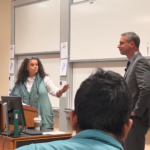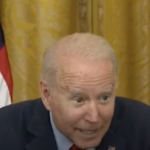Why We Must Defend Our Founding Documents
Last Sunday, a law professor from Georgetown University, Louis Michael Seidman, went on CBS TV and said we should give up on the Constitution:
I’ve got a simple idea: Let’s give up on the Constitution. . . . This is our country. We live in it, and we have a right to the kind of country we want. We would not allow the French or the United Nations to rule us, and neither should we allow people who died over two centuries ago and knew nothing of our country as it exists today. If we are to take back our own country, we have to start making decisions for ourselves, and stop deferring to an ancient and outdated document.
Now, Professor Seidman said that he didn’t mean that we should abandon the whole thing. We should just not let it get in the way of what we want to do. Worrying about the Constitution takes time and, besides, the Constitution has some dumb things in it, like the electoral college, which means that someone who gets a majority of the votes will not automatically and necessarily become president. Also, it was written a long time ago, and why should we be ruled by the dead hand of the past?
A moment’s reflection shows why the professor is wrong. The most fundamental thing we understand about ourselves is that we are free individuals. We form government and give up some of our freedom because that is the best way to preserve as much freedom as we can and live the best life we can. No one should enter into such an important arrangement without a written statement of what they can expect. Such a written statement of the terms of a deal is usually called a contract and that’s what the Constitution is, in effect, a contract. It sets down in detail what freedom we give up and what freedom we retain. It specifies how we will conduct our common business. The Constitution starts with the words “We the people . . .” because it is the agreement we make with every other American about how we will live our lives as fellow citizens. Just like any other contract, the purpose of the Constitution is to protect all those who are covered by it.
And, of course, abiding by the provisions of the Constitution does not mean we are ruled by the dead hand of the past. The Constitution has an amendment process. We can change provisions in the Constitution. Is it hard to do so? Yes, and it should be. The professor says he likes some things in the Constitution but not others. So let him try to change what he doesn’t like. This will set off a lot of debate. That’s good. That long debate will allow a thorough discussion. It will compel advocates on each side to make arguments and persuade their fellow citizens. All the various checks and balances in the Constitution, all the arrangements that divide power between three branches of government and the states and national government (including the electoral college), and the laborious amendment procedures force us to be deliberate and think through what we want to do.
Does this process always produce a wise decision? No, but it is much more likely to do so than following the vagrant thoughts of a law professor.
David Tucker is a professor and advisor in the Ashbrook Center’s Master of Arts in American History and Government as well as an Associate Professor of Defense Analysis at the Naval Postgraduate School.
This article was originally distributed by the Ashbrook Center.




